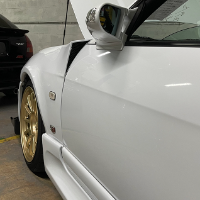Compression Test Readings.
Announcements
-
Similar Content
-
Latest Posts
-
By Julsmadrid · Posted
Yeah I initially reached out to them and they have been super helpful but they don’t have these rings in stock and they are the ones who told me they need to be made to suit. -
I went and found the actual FSM again (Yeah, I squirreled...) Screen grab of the FSM for M35. 51PSi with engine idling.
-
I thought the same too, and more than happy for others to bring another source for what it is. Just throwing so me caution out there, as potentially an extra 30% current needed than expected. Well worth more investigation, but right now, I'm going over my Cypher knowledge while Expendables 4 provides mundane noise in the background, ha ha!
-
If true then....wierd. That's a very high base fuel pressure for a shitty old early 2000s Nissan.
-






Recommended Posts
Create an account or sign in to comment
You need to be a member in order to leave a comment
Create an account
Sign up for a new account in our community. It's easy!
Register a new accountSign in
Already have an account? Sign in here.
Sign In Now